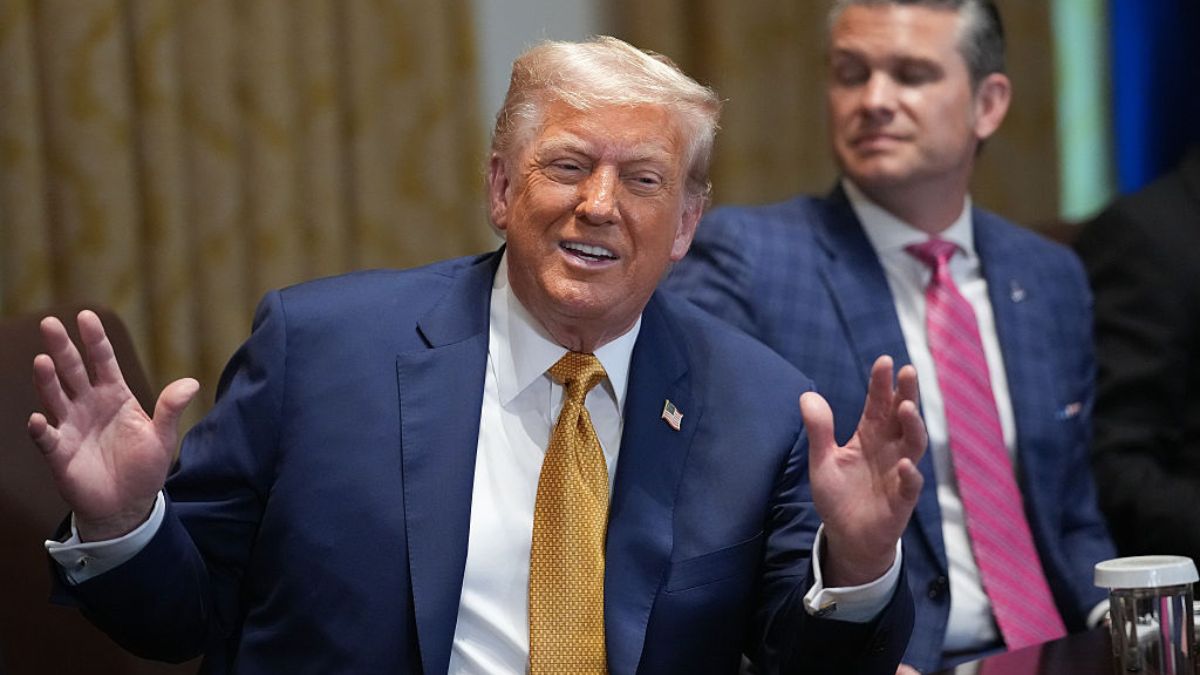
Photo by Andrew Harnik/Getty Images
Shocked allies, shattered alliances.
A senior Pentagon official under the Trump administration has caused major diplomatic tensions with key allies through his aggressive approach to foreign policy. Elbridge Colby, the Pentagon’s policy chief, has repeatedly clashed with international partners over defense spending and military roles in the Indo-Pacific region.
According to Politico, the tensions have grown so severe that they are now affecting high-level diplomatic meetings, echoing moments when even Trump’s own party turned against his extreme demands on defense. Colby’s direct and confrontational style has left foreign officials frustrated and questioning America’s commitment to traditional alliances.
During recent discussions with British officials, Colby delivered a shocking message about their military presence in the Indo-Pacific. The British team on the other side of the table “were just shocked,” according to sources familiar with the meeting. Colby was “basically saying ‘you have no business being in the Indo-Pacific,’” the source added. This blunt dismissal of Britain’s regional role has damaged relations between the two longtime allies.
Japan defense spending dispute derails key diplomatic meeting
The most serious diplomatic fallout has occurred with Japan, one of America’s closest allies in Asia. Initially, Japanese officials expected the Trump administration to ask for a modest increase in defense spending. Colby first publicly called on Japan to spend “at least 3 percent of GDP on defense as soon as possible,” which angered Japanese Prime Minister Shigeru Ishiba.
The situation became worse when Colby suddenly raised the target to 5 percent of GDP. This steep increase reportedly contributed to the collapse of plans for a high-level meeting between Defense Secretary Pete Hegseth, Secretary of State Marco Rubio, and their Japanese counterparts. “The Japanese were very frustrated,” said a person familiar with the talks. “They thought that they were agreeing to at least negotiate on the basis of 3 or 3.5 percent. Then Colby, all of a sudden, got DOD to say 5, and the Japanese got angry, because that’s not what they just agreed to.”
The incident caused problems within Japan’s ruling party, with officials worried about triggering a domestic political backlash ahead of a sensitive election. Colby has also told European partners that America doesn’t need their help in the Indo-Pacific, according to U.S. officials familiar with the conversations. This pressure-heavy approach echoes recent global friction, such as when Germany began rearming in direct response to similar demands from Trump-aligned policy hawks.
The hawkish wing of the Republican Party has expressed concerns that Colby’s “shoot first and ask questions later” approach is weakening Trump’s foreign policy at a crucial time. “The president’s leadership at NATO and his decision to strike Iran gave Russia and China good reason to fear America’s resolve,” said a senior GOP aide. “But Colby has just undercut the president and squandered his boss’s leverage.”



Published: Jul 9, 2025 02:50 pm